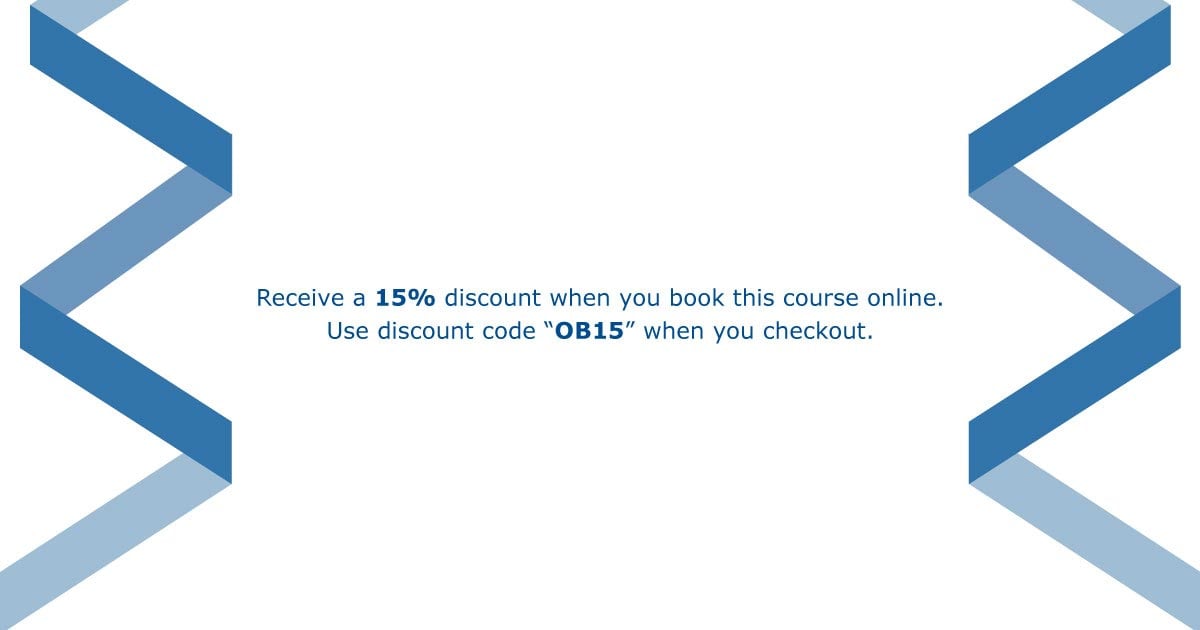Train the Trainer Programme
This programme sets an industry benchmark for trainers, facilitators and tutors delivering training to a professional audience. Designed around industry best practice and cutting edge research, the course will differentiate between training and education and enable participants to do both effectively, drawing upon current thought leadership and our own unique research into the field of professional education.
The 5-day accelerator programme will focus on three core areas of professional education and training:
- Understanding current theory relating to how people learn.
- Confidence in delivery using a range of teaching, coaching, and facilitation techniques to support knowledge transfer.
- Action research and application of innovation in adult training and education.
Our Train the Trainer Programme has been developed using current pedagogy and draws upon up-to-date neuroscience and psychological research relating to our understanding of how people learn.
Designed for evidence-based practitioners and engaging genuine thought leadership, the course will draw on the latest industry research. With detailed interviews and assessments of the best and most highly regarded executive trainers in the UK, our research digs deep to truly understand their methods, techniques and approaches. This highly interactive course uses research and evidence to underpin and develop a unique model to support best in class training and facilitation of senior executive groups.
Course Summary
Postgraduate Certificate in Executive Education - Optional
Duration:
5 Day
Delivery Method and Price:
Virtual Classroom:
£2,500
Course Information Video
About the Programme
The programme will be beneficial to anybody who has an interest in teaching and training experienced adult groups:
Potential participants for the course include:
- Learning and development professionals
- Professional tutors, facilitators and trainers
- Change leaders
- Executive education professionals
- Individuals exploring a career change into adult education
- Organisational and workforce development professionals
- Leaders and managers for whom teaching and developing others form part of their role.
Benefits
This course is for you if you want to…
- Become an industry leader in teaching and training professional and executive adult learners
- Understand current theory relating to how people learn
- Build confidence in your delivery using a range of teaching, coaching, and facilitation techniques
- Design, develop and deliver best in industry, high impact and engaging training and development programmes
*Please note that some of the materials and objectives may be subject to change depending on discussions, activities and needs of the cohort upon reflection of delegate responses to the pre-programme questionnaires.*
On completion of this programme, participants will:
- Be able to design, develop and deliver best in industry, high impact and engaging training and development programmes for professionals
- Successfully transfer professional knowledge from oneself to a professional audience and confirm learning has taken place
- Utilise technology to enable virtual and blended facilitation for large audiences, or remote learners
- Demonstrate confidence in the training and facilitation of experienced executive groups, in own area of professional knowledge
- Utilise current best practice approaches to coaching, mentoring and facilitation with professional groups
- Examine current theory relating to how people learn, and engage this to inform own teaching approach
- Research and apply current innovations in adult education through Action Research
- Use an evidence-based approach to design training to meet a specific knowledge gap or requirement with a professional audience
- Evaluate training using an industry model (such as the Kirkpatrick 4 Levels)
Session 1
An Introduction to Educational Theory
Key themes include:
- An introduction to the aims of the programme, the post graduate certificate qualification, and the requirements to complete it
- Core concepts in teaching and learning; an analysis of teaching methods, experiential learning, and the role of reflective practice
- Understanding how people learn – review of the key concepts in psychology and education, including social learning theory, constructivism and ‘schema’ theory
- Emergent research from the most exciting leaders in the field
Session 2
Engaging the Executive Audience
Key themes include:
- Engaging with the ‘big five’ personality types, and individual difference, in the training environment
- Coaching within the context of teaching, and using coaching skills with groups
- Facilitation skills, and a practical introduction to a variety of methods to support effective facilitation
Session 3
Learning and Development
Key themes include:
- An introduction to training needs analysis
- Methods to measure and evaluate the effectiveness of training and validate knowledge transfer
- Planning and designing your educational and training interventions, aims and objectives in teaching
- Reviewing your own teaching practice, and the impact of programmes on the organisation
Session 4
Engaging with Innovation in Teaching
Key themes include:
- An introduction to ‘action research’ in educational practice
- An exploration of creativity and innovation in professional practice, mindset and skillset
- Case studies of the most innovative approaches to teaching and learning currently being practiced
- Identify innovations relevant to teaching your own area of professional practice
- A delegate led analysis of current use of technology and other innovations to augment training and education with professional groups
Session 5
Psychology in Education, and Leading a Learning Culture
Key themes include:
- An overview of key psychological theories that support teaching and learning, including flow theory, grit, growth mindset, and the zone of proximal development
- Teaching as a leadership capability, and the role of teaching in developing an effective organisational culture
- The role of learning and development in supporting the flow of information, and knowledge management, in organisations
- Reflective practice; reviewing own performance as an educator, using established reflective processes, such as Kolb’s Experiential Learning Cycle
- Action planning and tutorial scheduling
Following completion of the Executive Education and Professional Training Programme, learners can opt to continue their studies with a Postgraduate Certificate in Executive Education, validated by the University of Chester. This is a level 7 postgraduate qualification which sits between an undergraduate degree and a masters.
The Postgraduate Certificate in Executive Education
- Highly flexible programme to work around individuals, with rolling entry points throughout the year.
- Qualification can be achieved within 7 months of starting the PG Cert journey.
- Modules include: Principles and Theory of Education Practice, Professional Education Practice and Executive Learners and Innovative in Executive Education Practice.
- Dedicated one-to-one support from our team of highly experienced academic supervisors, plus additional support from the Quality Assurance Team here at In Professional Development.
- Focus on work-based learning. Assessments can all be applied to the business situation/workplace, giving both the student and the wider organisation a chance to learn and adapt business practice.
- Achieving a PG Cert allows individuals to list the qualification as part of their credentials.
- This is also an excellent route into studying a full masters with the University of Chester. The Postgraduate Certificate in Strategic Leadership for Directors is mapped directly onto the full MBA (WBIS) that is offered by the university. Students opting to pursue the masters programme can offset their 60 PG Cert credits against the 180 credits necessary for a masters, thereby only needing to complete the remaining 120 credits.
Click here to find out more information about the PG Cert in Executive Education

Alex Firmin
Tutor
Alex is an experienced and dedicated education consultant and trainer. His core skillset is the design and delivery of engaging personal and professional development programmes. He is adaptable and comfortable working at any level in the organisation, from front line leaders to the Board.
Prior to working in consultancy Alex was an army officer (making it to Major). A natural diplomat, Alex studied Pashto (the language of Southern Afghanistan) and held a leadership role in supporting reconstruction and development, primarily in Helmand Province, Afghanistan. Alex supported the development and delivery of the army’s global Security, Leadership and Strategy programme, and later worked to establish the curriculum for Afghanistan’s Officer Training Academy, in Kabul.
Alex has built a consultancy business and delivered a diverse portfolio of organisational development projects. He works across all sectors and his clients include the NHS, NATO, Barnardo’s, Home Bargains, a variety of Academy Trusts and schools, and many smaller businesses and charities. Alex has worked closely with the Chartered Management Institute, and routinely lectures on MBA and Director Development programmes for the Universities of York, Chester, and East London. Alex maintains a high level of currency and is currently developing programmes focussing on Distributed Leadership, and Managing Neurodivergent Colleagues.
Alex holds three Master’s degrees: Educational Innovation, Psychology, and Occupational Psychology. He is married to Katherine and has two children and two Labradors.

Pierson Stratford
Tutor
Pierson has 15 years’ experience as a consultant and facilitator, specialising in leadership, management and coaching. Experienced in the design and delivery of people development, Pierson uses coaching psychology to engage with leaders at all levels, supporting them to; be, have and do more.
Highly experienced in talent development, from managing large graduate programmes to developing directors and senior leaders for global brands at an international level, Pierson adds value by making learning stick, while turning new knowledge into practical skills.

James Willerton
Tutor
With more than 10 years of business consulting and professional service experience, James has developed a well-rounded and practical perspective on strategic development and human capital development at all levels and cross-industries both nationally and internationally. With a focus on innovation in strategy development, James is a certified 'exceptional trainer’. He has a diverse background in business management, innovation, strategy development, organisational development, recruitment and operations.
During his role in recruitment, James applied advanced psychometric techniques and personally assessed over 1,000 candidates for client’s businesses, as well as his own. Combined with coaching, this has given him an advanced experience of dealing with the human psyche and obtaining optimal results for human capital and organisational development.
James has a very approachable manner, with valuable real-world experience as an employer and a senior consultant to a wide-range of industries and organisations.
Our dedicated In-House Training team can work with you to create a tailored training course that creates an optimal learning experience. Our bespoke built training programmes are designed around your needs and allow you to meet the specific requirements of your business.
Click here to view our In-House Training services.
Is this course right for you?
- Become an industry leader in teaching and training professional and executive adult learners
- Understand current theory relating to how people learn
- Build confidence in your delivery using a range of teaching, coaching, and facilitation techniques
- Design, develop and deliver best in industry, high impact and engaging training and development programmes
Testimonials
David Galvin
Blackpool Housing Company Ltd & Lumen Housing Ltd., Managing Director/CEO
PGCERT Executive Education
Tony Lockey
BSW Timber, Group Learning & Development Manager
PGCERT Executive Education
Helen Gilbert
Fishawack Health, Learning Experience Designer
PGCERT Executive Education

Accommodation Made Easy
On confirmation of your course booking, you'll have the option to book accommodation from the world renowned and trusted Booking.com. Book your course, book your accommodation, expand your skills. Easy as 1 2 3.
Featured Courses
Location:
Virual or Face to Face
Location:
Virtual or Face to Face






